Emerging technologies such as Multi-Party Computation (MPC), Zero-Knowledge Proofs (ZKPs), and Trusted Execution Environments (TEEs) are enabling new ways to embed compliance directly into cross-border transactions — without compromising data privacy or increasing operational overhead.
This session will convene experts from central banks, financial institutions, and technology providers to explore:
o What constitutes a “regulatorily acceptable proof” and how such proofs can be designed for auditability, durability, and policy alignment.
o How programmable compliance can be benchmarked against traditional approaches in terms of efficiency, cost, and effectiveness.
o What codification and design principles are needed to translate legal policies into machine-readable logic while preserving trust and legal defensibility.
o The fundamental tension between compliance needs and stronger privacy guarantees. How are these challenges intensified in cross-border context.
o Regulatory requirements decoded. What are the compliance needs and how to move towards parameterization of compliance.
o Design options, privacy enhancing technologies and maturity levels, current state of the art and evolving trends.
Insights Forum
Roundtable Room 2, Sands Expo & Convention Centre, Level 4







